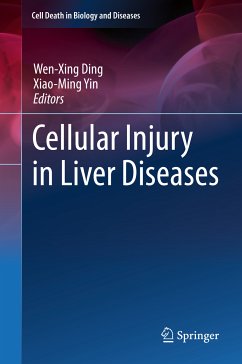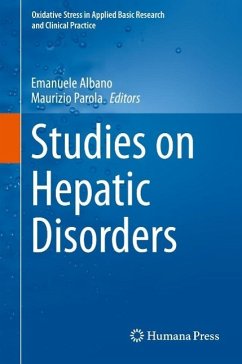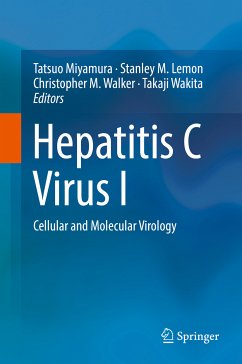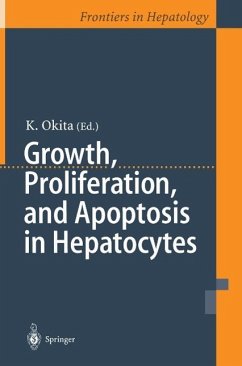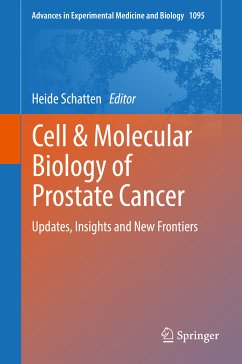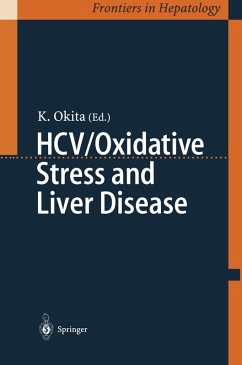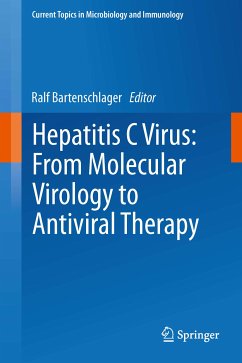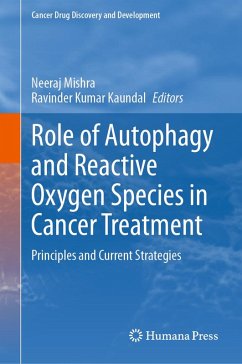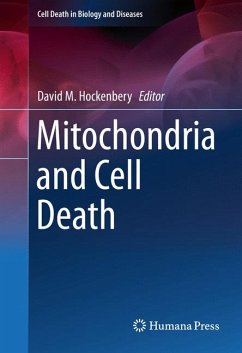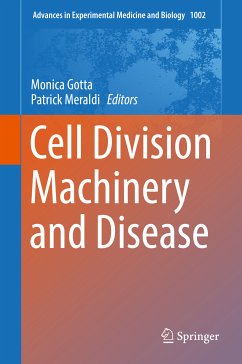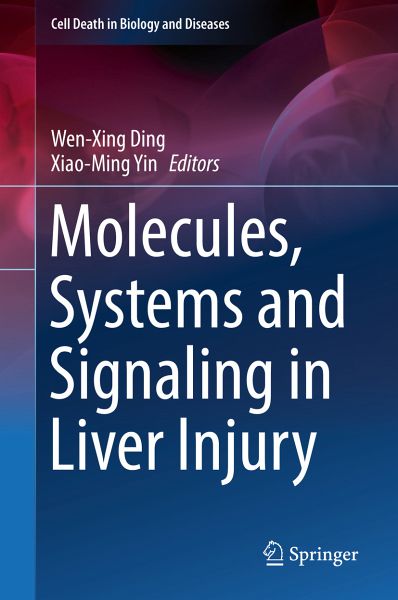
Molecules, Systems and Signaling in Liver Injury (eBook, PDF)
Versandkostenfrei!
Sofort per Download lieferbar
112,95 €
inkl. MwSt.
Weitere Ausgaben:

PAYBACK Punkte
56 °P sammeln!
This essential volume presents comprehensive information on cell death and autophagy in liver diseases, including the role and molecular signaling pathways of cell death in alcohol and non-alcoholic fatty liver disease, bile acids, hepatitis C virus and drug-induced liver injury. The book starts with a discussion of lipotoxicity in non-parenchymal cells, followed by a discussion of cell death and autophagy in cholangiocytes, hepatic stellate cells and Kupffer cells in hepatic biliary diseases, fibrosis and liver inflammation. The book also covers Bcl-2 family proteins, beta-catenin and HMGB1 s...
This essential volume presents comprehensive information on cell death and autophagy in liver diseases, including the role and molecular signaling pathways of cell death in alcohol and non-alcoholic fatty liver disease, bile acids, hepatitis C virus and drug-induced liver injury. The book starts with a discussion of lipotoxicity in non-parenchymal cells, followed by a discussion of cell death and autophagy in cholangiocytes, hepatic stellate cells and Kupffer cells in hepatic biliary diseases, fibrosis and liver inflammation. The book also covers Bcl-2 family proteins, beta-catenin and HMGB1 signaling in regulating cell death in the liver as well as mitochondria, ER stress and gut microbiota on liver injury. The Cell Death in Biology and Diseases series has recruited world experts ranging from basic scientists to clinicians on cell death in liver diseases. Likewise the contributors of this volume are leaders in their fields with worldwide expertise and perspective. Molecul
es, Systems and Signaling in Liver Injury is an essential companion to Hepatocytes and Non-Parenchymal Cells and Diseases. It is beneficial for both clinicians and basic scientists and is relevant to those working on drug discovery for preventing and treating liver diseases by targeting cell death and autophagy pathways.
es, Systems and Signaling in Liver Injury is an essential companion to Hepatocytes and Non-Parenchymal Cells and Diseases. It is beneficial for both clinicians and basic scientists and is relevant to those working on drug discovery for preventing and treating liver diseases by targeting cell death and autophagy pathways.
Dieser Download kann aus rechtlichen Gründen nur mit Rechnungsadresse in A, B, BG, CY, CZ, D, DK, EW, E, FIN, F, GR, HR, H, IRL, I, LT, L, LR, M, NL, PL, P, R, S, SLO, SK ausgeliefert werden.



